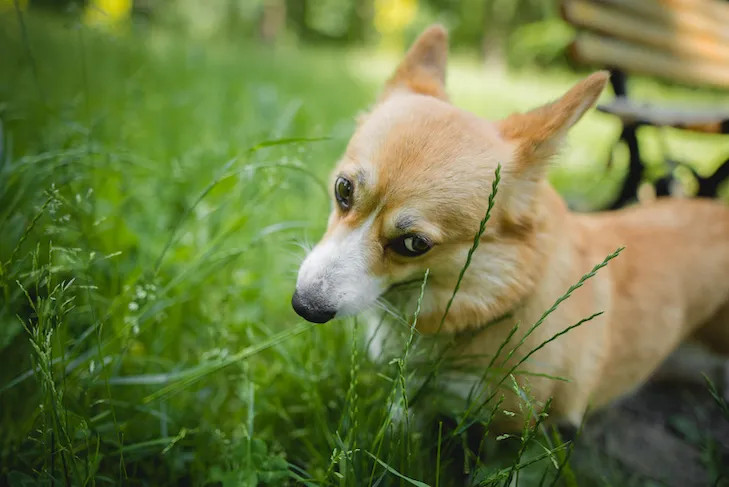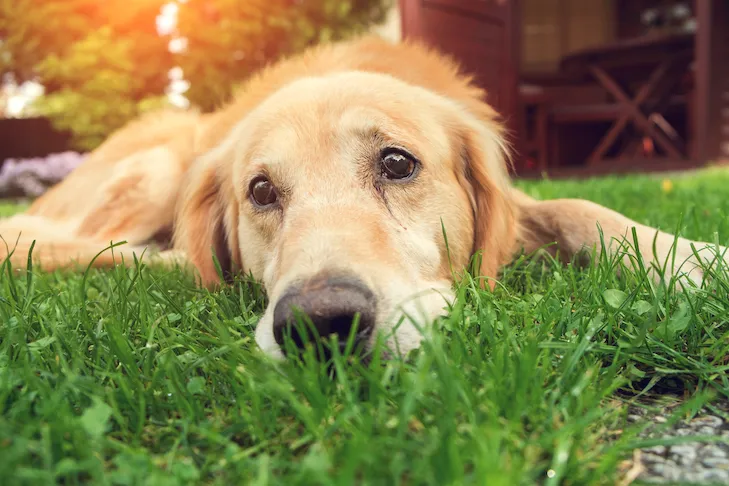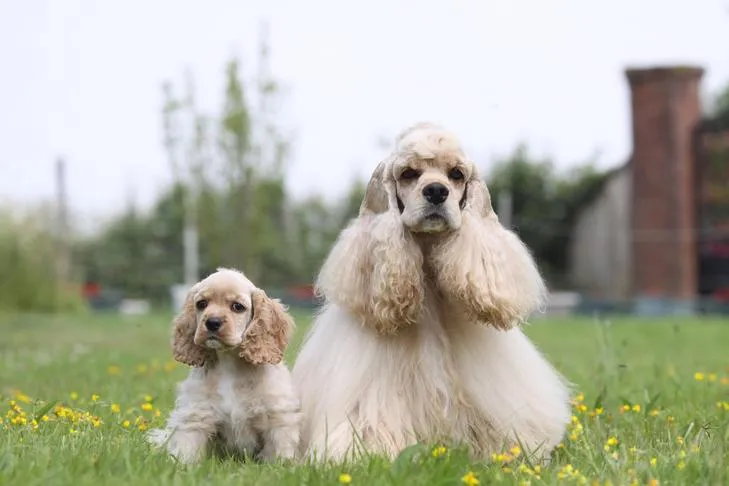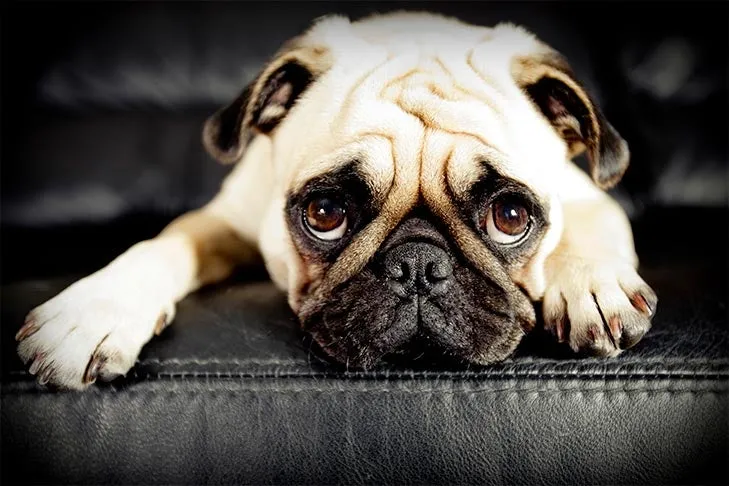Among the many peculiar habits our beloved canine companions exhibit—from drinking toilet water to rolling in unspeakable things—few are as universally disagreeable to dog owners as coprophagia, the act of eating poop. While this behavior isn’t intended to repulse us, it frequently does, sometimes leading to drastic considerations such as rehoming. If your dog has developed this unsightly habit, rest assured that various strategies, including dietary adjustments and specific supplements you can feed your dog, can help curb this behavior. Understanding the underlying causes, both behavioral and physiological, is the first step toward finding an effective solution for your furry friend.
Understanding Why Dogs Eat Poop (Coprophagia)
Coprophagia, pronounced kop-ruh-fey-jee-uh, is the scientific term for a dog’s habit of consuming feces. This behavior, while perplexing to humans, is surprisingly common in dogs, driven by a mix of behavioral instincts and, occasionally, physiological needs. Scientific exploration into coprophagia hasn’t been extensive, but existing research sheds some light on its prevalence. A study presented at the American Veterinary Society of Animal Behavior annual conference, led by Dr. Benjamin Hart from the University of California, Davis, revealed significant insights into this phenomenon.
The study found that approximately 16% (one in six) of dogs are considered “serious” poop eaters, defined as those observed eating feces five or more times. Furthermore, 24% (one in four) of all dogs in the study were seen eating poop at least once. Dr. Hart concluded that consuming fresh stools is likely “a reflection of an innate predisposition of ancestral canids living in nature that protects pack members from intestinal parasites present in feces that could occasionally be dropped in the den/rest area.” In essence, it’s a deeply ingrained evolutionary trait.
This behavior, while repulsive to human sensibilities, is less so from a dog’s perspective. Dogs evolved as scavengers, adept at consuming whatever they could find to survive. Therefore, their definition of an “acceptable meal” differs significantly from ours. Animal behaviorist Steven R. Lindsay, in his Handbook of Applied Dog Behavior and Training, suggests that coprophagia “may be one of several appetitive survival behaviors that have evolved to cope with the periodic adversity of starvation.” This highlights that for dogs, when food resources are scarce, being particular about what they eat isn’t an option.
Is Poop Eating Normal for Puppies and Adult Dogs?
For certain species, such as rabbits, consuming their own feces is a vital process for obtaining essential nutrients. Depriving rabbits of this behavior can lead to serious health issues and a failure to thrive in young rabbits. Fortunately, dogs do not require coprophagia for their fundamental nutritional needs. However, consuming feces is considered a normal and natural behavior at specific stages of a dog’s life.
Mother dogs instinctively lick their puppies to stimulate elimination and will eat their puppies’ feces to keep the den clean, typically for the first three weeks post-birth. Puppies themselves will also naturally engage in this behavior, consuming their own stool (autocoprophagia), feces from other dogs (allocoprophagia), and even droppings from cats and other animals. Many dogs show a particular fondness for horse manure and goose droppings. While it’s generally not dangerous for a puppy to eat their own poop, consuming feces from other animals can pose health risks if the stool is contaminated with parasites, viruses, or toxins. This behavior usually subsides by the time a puppy reaches about nine months of age.
 Pembroke Welsh Corgi eating grass in the park.
Pembroke Welsh Corgi eating grass in the park.
If your adult dog suddenly begins to eat poop, it’s crucial to consult your veterinarian. This is important to rule out potential health issues such as internal parasites, malabsorption syndromes, or conditions like diabetes, Cushing’s Disease, or thyroid disease, which can lead to an increased appetite. Certain medications, like steroids, can also trigger this behavior. Diets that are deficient in essential nutrients or calories may also contribute to a dog’s tendency to consume feces. After all, a balanced diet is key to a dog’s overall well-being, influencing everything from their energy levels to their coat health. Knowing what foods can a dog have is essential for their health.
Common Behavioral Reasons Your Dog Eats Poop
Beyond medical causes, adult dogs often start eating poop due to environmental stressors or specific behavioral triggers. Addressing these can be key to modifying the behavior.
Isolation and Confinement
Research indicates that dogs kept in isolation, such as those confined alone in kennels or basements, are more prone to developing coprophagia compared to dogs who have closer interaction with their human families. Loneliness and lack of stimulation can manifest in various undesirable behaviors, including eating feces.
Confinement to Small Spaces
Dogs that spend excessive amounts of time confined to small living spaces can develop a poop-eating habit. This behavior is frequently observed in dogs rescued from overcrowded animal shelters, where spatial limitations and stress are common. Providing ample space and mental enrichment can significantly reduce such stress-induced behaviors.
 Sad golden retriever lying on the ground. Looks like crying
Sad golden retriever lying on the ground. Looks like crying
Anxiety from Harsh House Training
Coprophagia can sometimes stem from the use of punishment or overly harsh methods during house training. According to one theory, dogs may eliminate and then consume their own feces in an attempt to hide the “evidence” from their owners, only to be punished further. This creates a detrimental cycle of anxiety and repeated undesirable behavior. Gentler, positive reinforcement-based training methods are always recommended.
Attention-Seeking Behavior
Dogs are intelligent creatures and quickly learn what actions elicit a reaction from their humans. Eating poop is certainly one such action that guarantees attention, even if it’s negative attention. It’s vital to try not to overreact if you catch your dog in the act, as even scolding can inadvertently reinforce the behavior by providing the attention they seek.
Inappropriate Association with Food
In some instances, dogs fed in close proximity to their elimination areas may begin to associate the odors of food with those of feces, making it difficult for them to distinguish between the two. To prevent this, always ensure that feeding and watering stations are kept distinctly separate from any potty or elimination areas.
Smelling Poop on Mothers
As animal behaviorist Steven Lindsay notes, puppies can sometimes become confused after sniffing fecal odors on their mother’s breath, especially after she has cleaned them. Furthermore, mother dogs occasionally regurgitate food that may be mixed with puppy fecal matter. Lindsay terms this an “appetitive inoculation,” suggesting it might predispose a puppy to develop this habit later in life.
 Cocker Spaniel mother sitting next to her puppy outdoors.
Cocker Spaniel mother sitting next to her puppy outdoors.
Living with a Sick or Elderly Dog
Occasionally, a healthy dog in a multi-dog household may consume the feces of a weaker or incontinent companion. Scientists hypothesize that this behavior might be rooted in an ancient instinct to protect the pack from predators by eliminating scent trails that could attract attention to vulnerable members. For dogs with specific health needs, it’s also important to be aware of what human food can a diabetic dog eat to manage their condition.
Dietary and Supplemental Approaches: What Can You Feed Your Dog to Stop Eating Poop?
Once medical conditions have been ruled out by your veterinarian, addressing coprophagia often involves behavioral modification and, crucially for our keyword, dietary and supplemental interventions. Many dog owners and veterinarians have found success in altering a dog’s diet or adding specific supplements to make feces less appealing.
Vitamin Supplements
A long-standing theory suggests that dogs eat poop due to a deficiency in their diet. Consequently, incorporating a high-quality dog multivitamin can sometimes be beneficial. Vitamin B deficiency, particularly thiamine, has been a prime suspect. Studies have supported this, with research in 1981 demonstrating that fecal microbial activity synthesizes thiamine, a B-vitamin. Other studies have also pointed to other missing nutrients as potential drivers for this behavior. Ensuring your dog receives all necessary vitamins can address underlying nutritional gaps.
Digestive Enzyme Supplements
The modern commercial canine diet often differs significantly from an ancestral canine diet, tending to be higher in carbohydrates and lower in meat-based proteins and fats. This nutritional shift can sometimes lead to digestive issues. Some dog owners report success by adding digestive enzyme supplements to their dog’s food. Certain products include papain, an enzyme known to aid digestion, which can improve nutrient absorption and potentially reduce the appeal of feces as a supplemental food source. If your dog has an upset stomach, understanding what can my dog eat for an upset stomach is also helpful.
Taste-Aversion Products
One of the most direct methods focusing on “What Can I Feed My Dog To Stop Eating Poop” involves using taste-aversion products. The premise is to make the dog’s stool so unpalatable that the dog no longer desires to eat it. These products typically come as treats or powders that you add to your dog’s regular food. They contain ingredients designed to make the resulting feces taste and smell offensive to the dog. Common ingredients in these deterrents include monosodium glutamate (MSG), chamomile, pepper-plant derivatives, yucca, garlic, and parsley.
It’s vital to remember that for these products to be effective in multi-dog households, all dogs (and even cats, if your dog eats cat poop) must consume the stool-eating deterrent. This ensures that all available feces are rendered unappealing. Additionally, some owners use bitter-tasting sprays directly on feces to immediately deter consumption, although this requires constant vigilance.
 Close-up of a Pug laying on a black leather chair giving sad puppy eyes.
Close-up of a Pug laying on a black leather chair giving sad puppy eyes.
Environmental Management and Training Strategies
While dietary interventions can be highly effective, the best long-term solution often involves a combination of feeding deterrents, environmental management, and consistent training.
Keeping the Environment Clean
Perhaps the simplest and most effective way to prevent coprophagia is through diligent environmental management. This means keeping your dog’s living areas, including your yard, meticulously clean. Immediately picking up all feces eliminates the temptation for your dog. When on walks, supervise your dog closely and promptly pick up their poop.
Training Cues: “Leave It” and “Come”
Strong training in cues like “leave it” and “come” is invaluable. A simple yet effective exercise is to teach your dog to come to you for a highly rewarding treat immediately after they’ve finished defecating. This creates a positive association, encouraging your dog to turn to you for a tasty reward instead of being drawn to the waste on the ground. Consistent practice of these cues can fundamentally change your dog’s post-elimination behavior.
Managing Cat Litter Boxes
If you have a cat, ensuring the cat litter box is clean and inaccessible to your dog is crucial, as many dogs find cat feces particularly appealing. Options include using self-cleaning litter boxes designed to deter dogs or placing a dog gate to restrict access to the litter box area.
Lesser-Known Facts About Canine Coprophagia
Understanding some peculiar facts about coprophagia can further help in addressing this habit:
- Type of Stool Preferred: Dogs rarely consume soft, poorly formed feces or diarrhea. They seem to be primarily attracted to firm stools. Frozen poop, bizarrely, is often considered an especially exciting treat for dogs with this habit.
- Prevalence in Multi-Dog Households: Dr. Hart’s study also observed that coprophagia is more common in homes with multiple dogs. While only 20% of dogs in single-dog homes exhibited the habit, this number rose to 33% in households with three or more dogs.
- House Training Difficulty: Surprisingly, dogs who eat poop are no harder to house train than other dogs. This suggests that the behavior is distinct from house-training issues.
- Gender Differences: Female dogs are more likely to engage in coprophagia, whereas intact males are the least likely.
- Preference for Fresh Poop from Other Dogs: A striking 92% of poop-eating dogs prefer fresh feces, typically one to two days old. Furthermore, 85% of these dogs will not eat their own feces, preferring those from other dogs.
- “Greedy Eaters” Tendency: Dogs known for being “greedy eaters”—those who steal food from tables or readily consume anything edible—tend to be more prone to eating poop.
If you observe your dog engaging in coprophagia, a consultation with your veterinarian is always the best first step. They can help diagnose any underlying medical causes and direct you to behavioral experts if the issue is rooted in stress or training. By understanding why your dog is eating poop, you can implement the most appropriate solutions, including targeted dietary changes and supplements, to help them stop this undesirable habit. For general dietary information, you might also be interested in what human food can my dog eat to ensure a balanced diet.
References
- Hart, B. L. (2012). The Behavior of Dogs and Cats: Veterinary Advice for Owners. Blackwell Publishing.
- Lindsay, S. R. (2000). Handbook of Applied Dog Behavior and Training, Vol. 1: Adaptation and Learning. Iowa State University Press.
